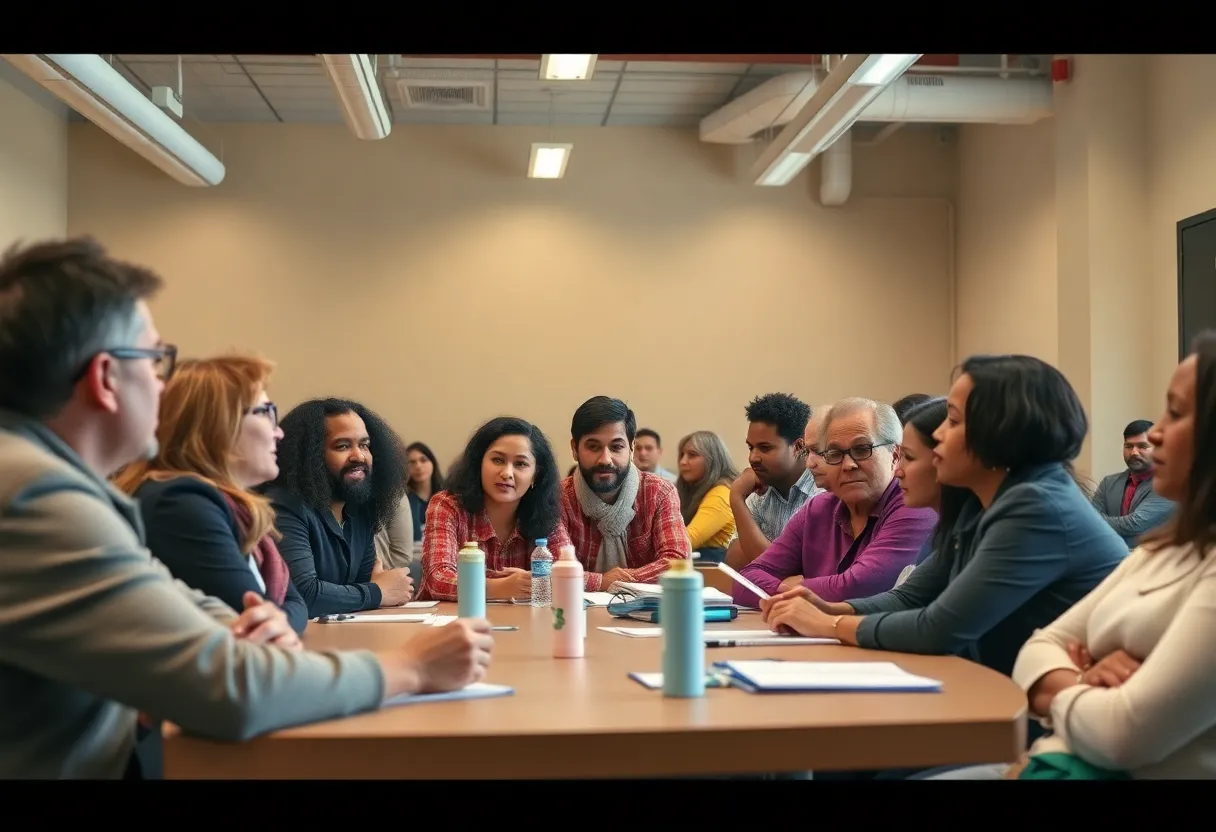Montpelier, Vermont, August 25, 2025
News Summary
The Commission on the Future of Public Education in Vermont emphasizes the importance of early community involvement in school closure decisions, advocating for engagement 1 to 18 months in advance. During their recent meeting, members discussed the necessity of transparent decision-making processes to mitigate the impact of closures on families. Key principles were outlined, including prioritizing student welfare and maintaining open dialogues with communities. The commission plans to further explore equitable budgeting and enhanced community participation in its upcoming meetings.
Montpelier, Vermont
The Commission on the Future of Public Education in Vermont has emphasized the need for community involvement in local school closure decisions, advocating for engagement 1 to 18 months prior to such actions. This approach was discussed during their meeting on August 18, where members collectively recognized that early community participation is crucial to ensure transparency and to prevent unexpected disruptions for affected families.
The commission was established by the Vermont Legislature to develop strategies related to public school funding, district operations, and organization, including the protocols surrounding school closures. Alongside this commission, the Legislature launched the School District Redistricting Task Force, which is tasked with recommending new school district boundaries, reflecting the state’s commitment to thoughtfully managing public education resources.
Key members of the Commission include Chair Jay Nichols, Education Secretary Zoie Saunders, and other educators and community representatives such as Jennifer Deck Samuelson, Oliver Olsen, and John Castle. Together, they discussed key principles regarding the decision-making process, which are focused on keeping student welfare at the forefront, ensuring communities are informed in a timely manner, and maintaining a transparent dialogue throughout.
During the discussions, concerns were raised about the potential impact of small, rural school closures. One member, who expressed skepticism about closing rural schools, argued that it is critical for closure decisions not to be left solely in the hands of a small group. Instead, he insisted on establishing community forums to facilitate broad public engagement and discussions about the implications of school closures.
Secretary Saunders underscored four key principles for the future of public education: prioritizing student interests, ensuring early communication with communities, maintaining transparency throughout the decision-making process, and avoiding decisions made under emergency circumstances. These principles reflect a commitment to a collaborative approach in decisions that affect local schools and the communities that support them.
The importance of community outreach was reiterated by various commission members, who expressed a collective desire to prevent any last-minute changes imposed by legislative actions that could adversely affect schools and communities already facing challenges. Chair Jay Nichols acknowledged the necessity of public discussions early in the process but cautioned against limiting the authority of local boards in their final decisions on school closures.
In a bid to facilitate a fairer closure process, Jennifer Deck Samuelson suggested a system of multi-layered voting that would involve both town and district levels, incorporating different thresholds necessary for closure approval. This proposal aims to enhance local voices in significant decisions that could alter the fabric of communities.
The commission is set to hold its next meeting on September 8 at Folsom School in South Hero, where the agenda will center on equitable budgeting and fostering greater community involvement in the educational decision-making process.
Frequently Asked Questions
What does the Commission on the Future of Public Education in Vermont do?
The Commission develops plans for public school funding, district operations, and the organization, including guiding principles for school closures.
What is the recommended time frame for community engagement prior to school closures?
The Commission advocates for community involvement beginning 1 to 18 months before any proposed school closure.
Who are the members of the Commission?
The Commission includes educators, community representatives, and state officials, including Chair Jay Nichols and Education Secretary Zoie Saunders.
When is the next meeting of the Commission scheduled?
The next meeting will take place on September 8 at Folsom School in South Hero.
Key Features of the Commission Meeting
| Feature | Description |
|---|---|
| Community Engagement Timeline | 1 to 18 months prior to school closure decisions. |
| Key Principles Outlined | Student-centered decision-making, early community information, transparency, and avoiding emergency-led decisions. |
| Proposals for Closure Voting | Multi-layered voting involving town and district approval with varying thresholds. |
| Next Meeting Date | September 8 at Folsom School in South Hero. |
Deeper Dive: News & Info About This Topic
HERE Resources
Evergreen Public Schools Delays Start of School Year
Charleston High School Football Games Postponed Due to Rain
Closure of Flowery Elementary School Approved
Denver Schools Cancel Classes Due to Extreme Heat
Austin Independent School District Plans Campus Closures
Top-Ranked Private K-12 Schools in Houston Metro Area Revealed
Houston Area Ranks Top Private K-12 Schools
Central High School Cancels Varsity Football Season
West Virginia Faces Decline in Public School Enrollment
District 65 Weighs School Closures Due to Financial Strain
Additional Resources
- NBC 5: Copley Hospital Closing Birthing Center
- Wikipedia: Public Education in Vermont
- VTCNG: New Crisis Pregnancy Center Draws Concern
- Google Search: School Closure Decisions Vermont
- Vermont Daily Chronicle: Banned Writer Accuses Front Porch Forum
- Encyclopedia Britannica: Public Education
Author: STAFF HERE HOUSTON TX WRITER
The HOUSTON STAFF WRITER represents the experienced team at HEREHouston.com, your go-to source for actionable local news and information in Houston, Harris County, and beyond. Specializing in "news you can use," we cover essential topics like product reviews for personal and business needs, local business directories, politics, real estate trends, neighborhood insights, and state news affecting the area—with deep expertise drawn from years of dedicated reporting and strong community input, including local press releases and business updates. We deliver top reporting on high-value events such as Houston Livestock Show and Rodeo, Art Car Parade, and Chevron Houston Marathon. Our coverage extends to key organizations like the Greater Houston Partnership and Houston Area Urban League, plus leading businesses in energy and healthcare that power the local economy such as ExxonMobil, Schlumberger, and Houston Methodist. As part of the broader HERE network, including HEREAustinTX.com, HERECollegeStation.com, HEREDallas.com, and HERESanAntonio.com, we provide comprehensive, credible insights into Texas's dynamic landscape.





